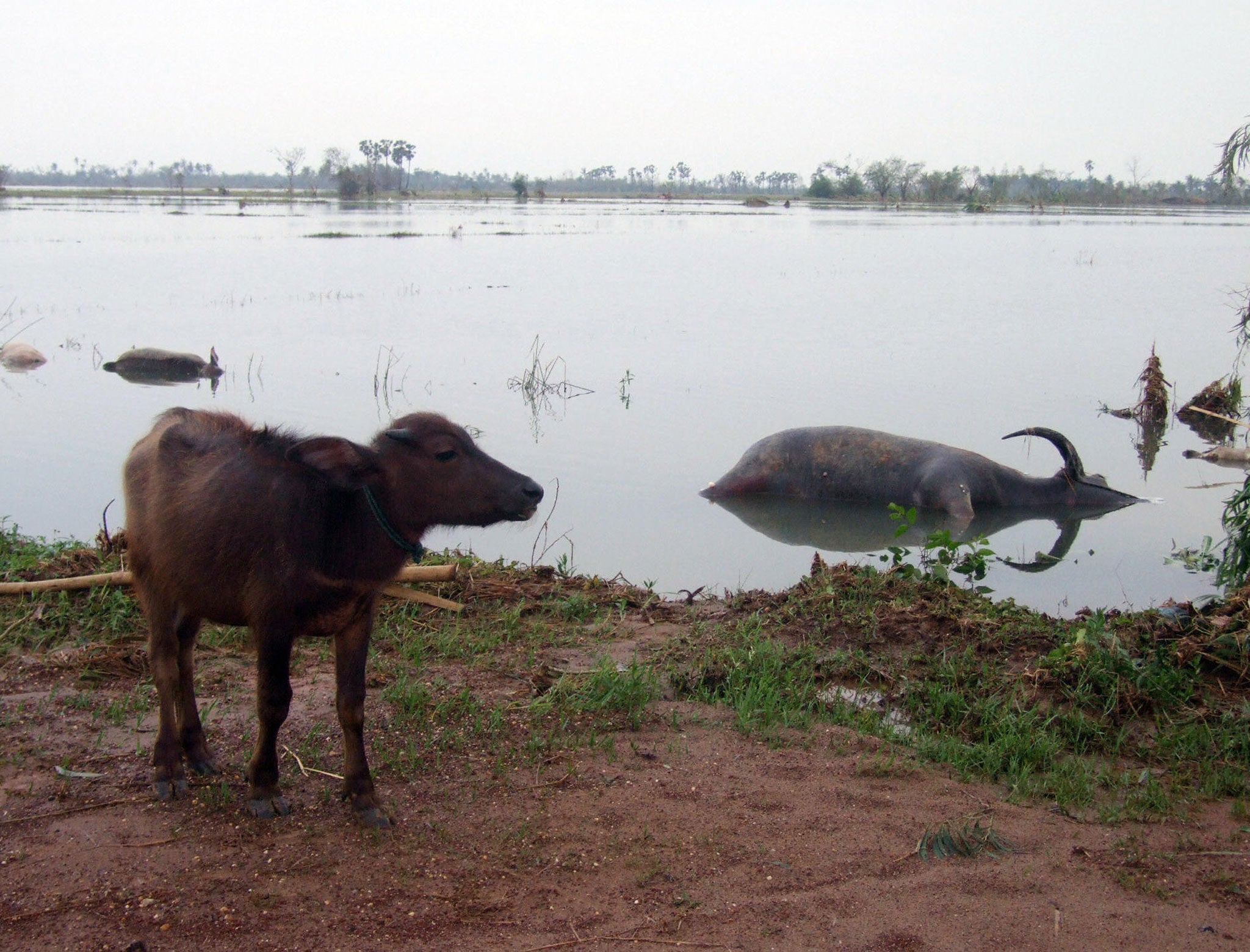Why animal charity matters: Helping livestock victims of natural disasters helps people too
Despite possible appearances some animal charities have got their priorities right

If I told you that in February 2011 in aftermath of flooding and landslides in Bolivia which affected 24,000 people, the charity that I lead went in to provide veterinary care to over 39,000 animals, you might question whether we had our priorities right. We’re still helping animals out there and I’m flying in next month to talk to government and UN officials about what more can be done, with at least 20,000 animals now at risk with one of the most severe winters on record.
If I told you the name of our charity – the World Society for the Protection of Animals – then you might at least understand our mission. Around the world every year, millions of animals suffer and die as a result of the same catastrophes that hit people.
However, if I told you that those 20,000 animals are the lifeblood – the livelihoods and future security – of more than 500 families, you would hopefully see that helping animals helps people too. People may rely on animals for transport, ploughing or food. Without aid, most of those animals would have died and with them would have gone the hope for the future for local people. Bolivia relies heavily on extensive farming and livestock breeding to support its economy, with forty per cent of the population estimated to be engaged in the agricultural and livestock sector (a figure which rises as high as 80 per cent in rural areas).
But we’re too small a charity to do this all by ourselves, especially with a global remit and disasters to cover around the world. After initially securing vital food and medicine, we worked with the Bolivian authorities and other national and international humanitarian agencies already in the country. Together, we formed a working group to address security and health issues, which contributed to disaster assessment and identified areas of work to be rolled out. This long term planning is essential when crises can drag on for years.
And this year we were back out in Bolivia again in partnership with the UN Food and Agriculture Organisation and the local authorities with more intervention and now long-term solutions that prepare for a sustainable future, such as animal shelters. By preparing communities in advance, we can mitigate the effects of future disasters.
I’ve seen the desperate need for these projects myself, for example in the mountains of Pakistan after the earthquake there. The consequences of not taking action can be serious. In Myanmar, when Cyclone Nargis hit in May 2008, over 50 per cent of the country’s livestock was killed. There was a huge welfare problem for animals. The survivors suffered severe injuries, water contamination and lack of veterinary care created a highly disease-prone and contagious environment, with the threat of cross-infection to humans dangerously high.
I am proud to say that the WSPA has since been asked to design risk reduction projects to safeguard Myanmar’s animal welfare, food security and rural livelihoods from disasters. A clear case of protecting animals also benefiting people. In fact, we find this is the norm rather than the exception, which is why we concentrate on practical solutions that work for both animals and people.

These achievements are clear examples of where we as a charity have sought to influence rather than simply deliver. We can’t hope to reach every animal hit by flood, famine or earthquake. Neither can governments, international organisations and other charities hope to protect some of the world’s most vulnerable people effectively, unless they also protect their animals. We have to persuade them of this and work together, influencing their policies.
And I passionately believe that charities need to do more of this if they are to ensure that their donors’ money achieves maximum benefit. In India this year for example, the authorities have now, as a result of our work with them, asked all states to integrate animal protection into their Disaster plans, a move that could reach millions of animals that would otherwise have been beyond the help of charities. And we are achieving this sort of success around the world, and not just in disasters.
That’s because charities can’t do it all themselves. The truth is that charities will never have all the resources to meet every challenge, and the danger is that simply always responding to crises rather than helping prevent them creates a dependency on charities in many parts of the world. As the old saying goes, prevention really is better than cure.
So to meet these challenges requires new thinking. It means charities aiming to provide models and establish best practice as well as immediate relief.
That’s why I will be sharing our experiences at the United Nations in the coming months, on my way to Bolivia to maintain momentum and progress there. And its why our charity is also now training Colombian fire-fighters in rescuing animals – the first time we have done this – because research has shown that people affected by fire or disaster often return to rescue animals, which unfortunately hampers wider rescue efforts and often leads to unnecessary deaths.
Once again: by influencing, rather than simply reacting, we can achieve better outcomes.
Mike Baker is chief executive of the World Society for the Protection of Animals

Join our commenting forum
Join thought-provoking conversations, follow other Independent readers and see their replies